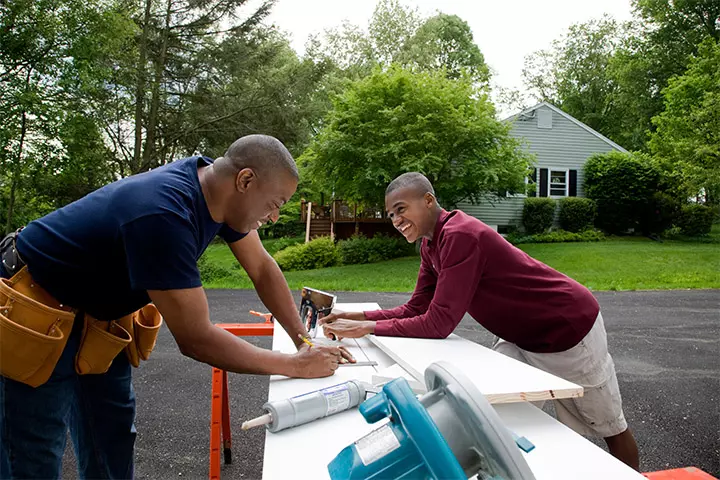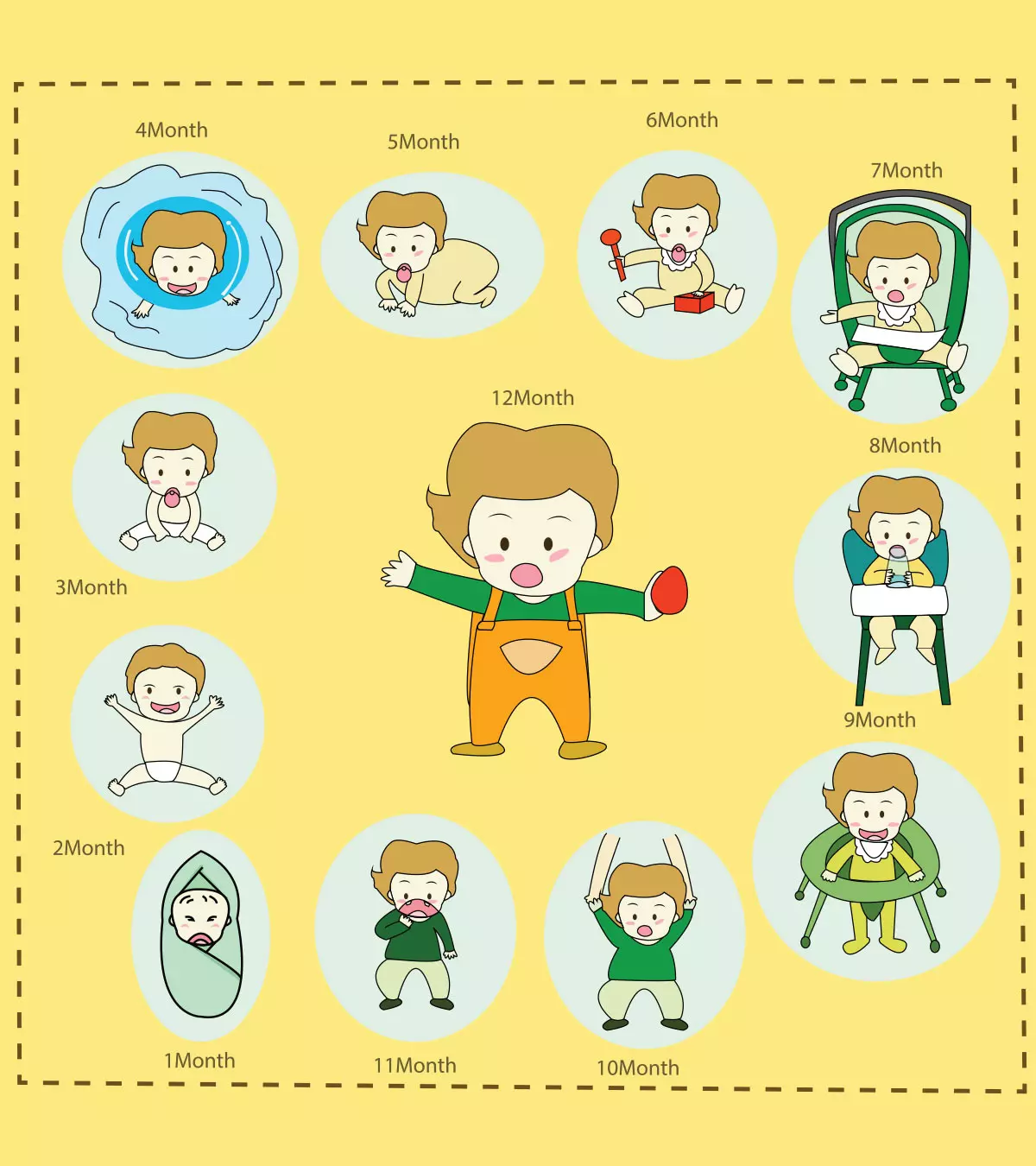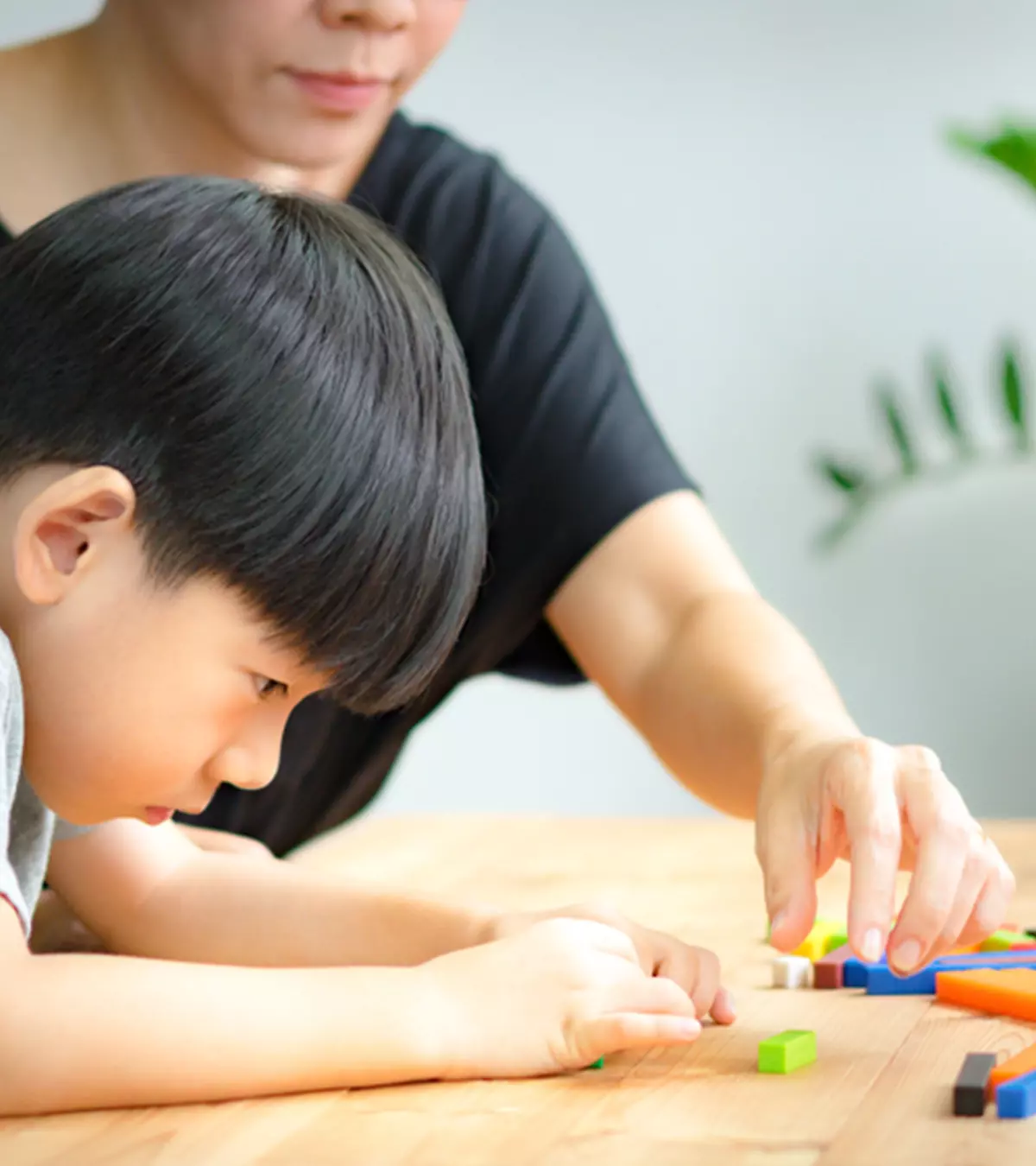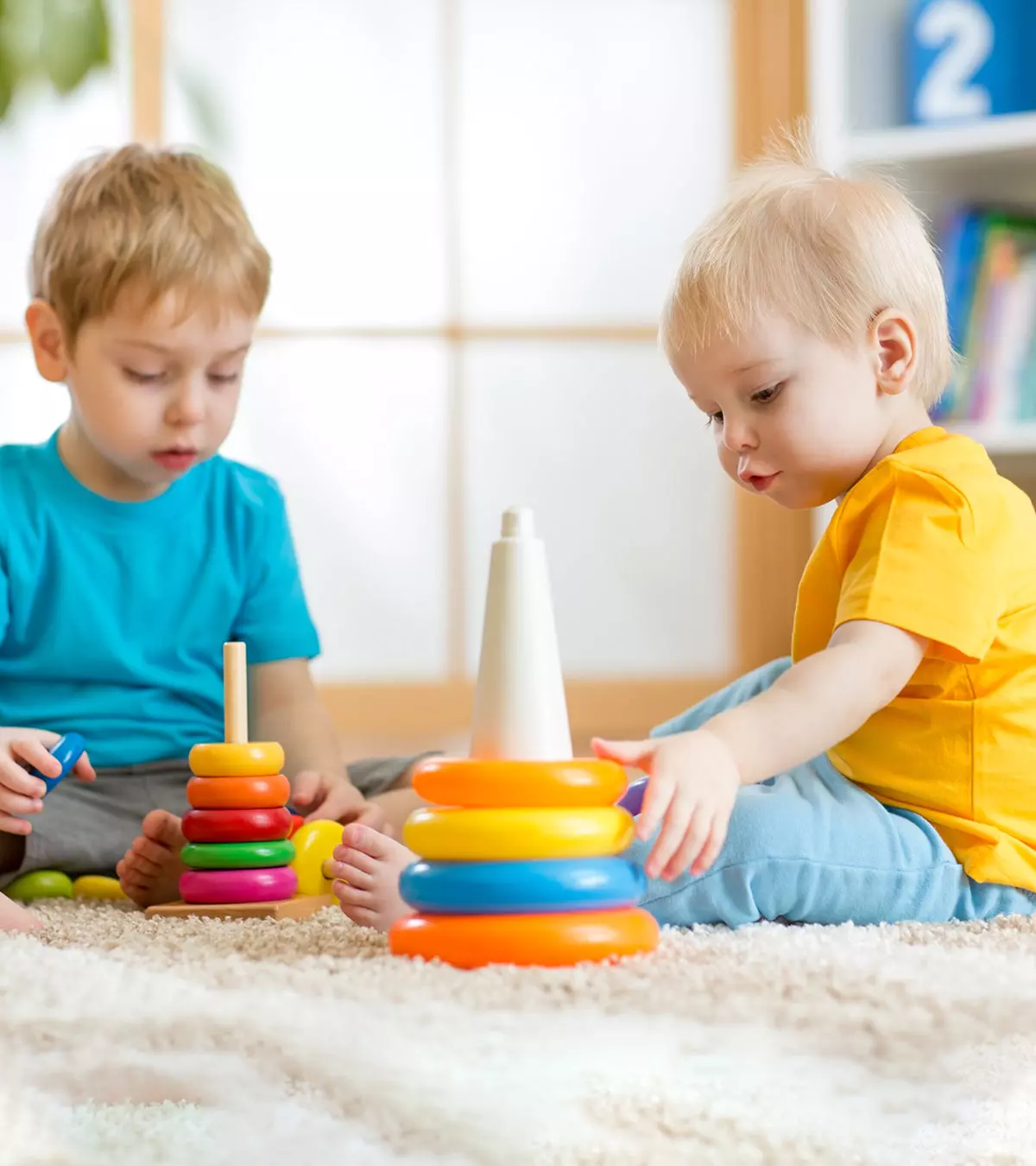
Image: Shutterstock
Teenage independence is a powerful urge that can sometimes lead children to act out. As they grow, they naturally prefer spending more time alone or with friends rather than family, which is completely normal. However, without proper guidance, they may occasionally make poor choices and find themselves in difficult situations. As a parent, navigating this stage can be challenging. Striking the right balance between granting independence and providing guidance is crucial during these developmental years. So, how do you allow them freedom while ensuring their safety and maintaining control? Rather than trying to control every aspect of their lives, establish simple yet effective rules that allow them to enjoy their autonomy while staying responsible. However, for this approach to be successful, mutual trust and respect between you and your child are essential. Read on to discover practical tips to help your teen become independent while remaining responsible.
Key Pointers
- Demonstrate your love and support for your teen by showing interest in their activities, friends, and hobbies.
- Value your teen’s emotions and needs by listening to their opinions on significant family issues.
- Establish simple, equitable, and age-appropriate family rules.
- Discuss relationships and sex candidly and appropriately with your teen to provide accurate information.
- Refrain from comparing your teenage experiences with your child’s since times have changed.
Why Do Teenagers Need Independence?
Teenage independence is a crucial step towards adulthood. When teens learn to be independent, they develop essential life skills and build confidence. They start making their own decisions based on reasoning and intuitive abilities (1). Basically, they are learning to be self-reliant and form individual identities.
During adolescence, children explore their interests and goals (2). Hence, parents should provide a healthy balance of freedom and guidance; it helps strengthen trust and communication. Instead of constant power struggles, teens feel more comfortable seeking parental advice when needed, leading to a stronger parent-child bond.
Ultimately, teenage independence equips young individuals with the confidence and skills necessary to thrive in the real world.
How To Make Your Teen Independent?
As your child enters the teenage years, they will ask for more and more independence. You will see his need for independence in small activities and even in simple routines of day to day life. This is the time when your teen will start understanding more about the adult world and how it feels to take responsibility. This is also the time when your teen is most prone to getting into risky behavior. Trying to find a balance between independence and safety is often a challenge. This is the time when teenage independence comes into focus.
Here are a few pointers that can help maintain the relationship between independence and safety, keeping both your teen and you happy and safe:
1. Encourage responsibility and accountability
Teaching the value of responsibility to your teenager is a key step towards helping them become self-contained and self-directed.
- Tell your teen that it is always important to take responsibility for one’s actions. People like interacting with those who are responsible and can stand up for themselves.
- Your teen may make mistakes, but tell them it is a natural part of learning and growing up. Ask them to own their mistakes as well as feel happy about anything good they do. If you commit a mistake, accept and apologize for it. This way you are setting a good example for them. They will make mistakes a few times and eventually learn from them, just as Blogger Kristy C’s son did after she stopped correcting him for his habit of not waking up on time.
She says, “My teenage son struggled with getting up in the morning. I would knock on his door, and he would initially respond that he was awake, only to fall back asleep. This led to a series of wake-up calls, reminders to get out of the shower, and a countdown to ensure he didn’t miss the bus…I realized that for my son to develop independence and succeed, I needed to stop acting as his PA and I needed to be his mother. I needed to allow him to face the consequences of his actions, even if it meant failure.
“I made it clear what the consequences would be and followed through when he made mistakes. Consequently, he went to school without his lunch a few times due to forgetting to prepare it, had to walk to school until he could manage to get up on time, and received some lower grades on assignments due to last-minute submissions. I think the pivotal point was an embarrassing call from his employer after missing a shift (i).”
 Point to consider
Point to consider2. Protect their privacy and safety

When your child hits the teen years, it is natural for them to feel the need for their own space. Even the smallest thing you do may feel like overbearing to your teen. This is a time when you need to make it very clear about what is allowed and what is not acceptable.
- Setting some house rules for teenagers at this stage will be helpful for your child, as they will know what is expected. It is important you are fair while creating these rules. While imposing a curfew past 10 pm is understandable, asking your teen to be home by 7 pm each night may not be a good idea.
- Set the rules for driving. Tell your teen that you are okay with them driving once they have their driver’s license. But be sure to tell your teen that speaking on the phone, texting or driving under the influence of alcohol will not be acceptable behavior.
- This is a time when your teen will start exploring love and relationships. It is crucial you sit with your teen for an open and age-appropriate discussion. During the teen years, your child will get a lot of information from friends, peers and media about sex and substance use. It is a good idea to be clear in your discussions with your teen and not beat about the bush. Be confident when you speak and do not feel awkward. Understand that you are the biggest source of correct information for your teen. So it is important you speak to your teen clearly. In case you are not comfortable doing this, you can always ask your partner. This is also the time when you need to set the limits to how much intimacy will be acceptable if your teen gets in a relationship.
- Teenagers are most likely to be influenced by sex and substance use. Speak to your teen about safe sex options while making clear that you do not in any way support complete physical intimacy at this stage. Talk to your teen about the importance of using protection. Talk to your teen about the negatives of unplanned and early pregnancy. Talk to your teen about date rape and different methods of staying safe from sexual offenders. You should also speak to your teen about the negatives of substance abuse. Talk about the various ways that can be used to spike a drink. If at all your teen wants to experiment with drinks, ask them to host a house party where they and their friends will be safe. You need to ensure your teen’s friends have the permission of their parents before you allow such a party.
 Quick tip
Quick tip3. Allow your teen to build trust

If you want your teen to be independent, help them become more responsible and win the trust of people.
- Teach your teen that to be independent, it is important first to gain the trust of his peers and adults. To do so, your teen needs to act more responsibly.
- Once people see that they can trust your teen, they will give them responsibilities to handle independently. Fulfilling these responsibilities without failing helps boost self-esteem in teens.
4. Let them take initiatives
If your teen wants to be independent, there are many or most things they will have to do on their own to become self-sustained.
- Tell them they are old enough to take care of certain basic things. Let them help you where they can and do things on their own.
- He can ask for your help, but let them start taking the initiative.
 Point to consider
Point to consider5. Teach your teen to cook

Cooking is one of the most essential life skills for teens. Research indicates that youth involvement in food preparation is linked to better diet quality and higher self-esteem. According to a study, “Aside from filling the immediate need for food, some youth ascribe value to the process of food preparation for family relationships (e.g., spending time with a parent), and for future development (e.g., learning useful skills) (4).” You may normalize this self-sustaining life skill and let your teenager learn basic cooking, cleaning, and taking care of themselves.
- Learning to cook will help your teen become self-reliant and not rely on anyone for something as basic and important as food.
- Once your teen learns to cook, they will not have to go for junk food or restaurant meals. Not only will they learn to save money, but will also inculcate a healthier food habit.
6. Ask your teen to prioritize things
As an independent person, your teen should be able to know what is important and in what order.
- Self-regulation is important. Educate your teen on how to make distinctions between tasks that are of priority and those that they can do during their free time.
- Your teen should understand that, even though some things may seem critical, they can be put off for later. On the other hand, they may postpone the completion of a few crucial tasks.
How To Support Your Teen When Making Them Independent?
Teens need their independence, but it may not be easy for some parents who may worry about their child’s safety. Here are some things to keep in mind when helping your teen to become an independent individual.
1. Love and support your teen

Research indicates that strong and supportive parent-adolescent relationships play a crucial role in helping teenagers regulate emotions, which helps foster prosocial behavior and reduce aggression. Open communication and emotional connectedness between parents and adolescents are significantly linked to increased prosocial behaviors (3). This is one of the main pointers that will help you through the teenage years of your child. At this age, your teen will shy away from all acts of physical love and public display of parental love. They will desire to be self-standing and self-ruling. But there are other ways to show you care.
- Be interested in what your teen is doing.
- Show an interest in your teen’s friends.
- Show an interest in the hobbies and activities that interest your teen.
- Be a good listener.
- Give advice when you feel your teen is confused, but do it in a light and non-preachy way.
- Tell your child that you love them. Try and say it as many times and at as many instances as you can.
- Give your teen his privacy but make sure you include them in family activities and seek his opinion too.
- Don’t be judgmental or opinionated.
- Do not ridicule your teen in front of anyone else.
- By doing all this you will help make your teen self-confident and happy. This will in turn make your teen more responsible.
 Quick tip
Quick tip2. Respect your teen’s emotions
Your teen may not be an adult but that does not mean you don’t need to respect them. It is important to remember that during the teenage years, your child will be facing a lot of emotional, physical and psychological turmoil. This means that your teen will be confused, anxious, and angry most of the time. But this is entirely natural and a part of growing up to become a self-reliant adult.
- Respect your teen by hearing them out.
- Let them feel valued by listening to his opinions or asking them about their views on important family matters. You don’t always have to do exactly what they say, but you should definitely give them a chance to share their views too.
- This will also be a good way to show your teen that there may be differing views but there is still a way of reaching a conclusion that can work for all.
- This is also a good way to be interactive with your teen. Your teen will feel respected and loved. This will encourage your teen to speak with you in an honest and fearless way.
3. Acknowledge their growth
As a parent, you may feel your teenager is still a child, but that does not mean the world will see them as one.
- Tell your teenager that the first step towards becoming independent is to realize that they are not a little child anymore. It is wrong for your teen to expect that people will treat them as a child.
- Tell them to start behaving more like a mature adult if they want people to take them more seriously.
4. Teach your teen to be safe

One of the biggest fears that you may have as a parent about your teen’s sudden independence is his safety.
- Ask your teen to enroll in a self-defense class. Once your teen knows how to defend themselves in any potential danger, it will be easier for them to be independent.
- Teach your teen the importance of being safe no matter how sure they are of their self-defense skills. As a safety measure, tell them that they should avoid going to places that are not safe. They should also avoid going out with people, friends or strangers with whom they are not comfortable.
5. Guide your teen in times of distress
Your teen needs to know about all the help numbers they can call for assistance when they are in danger or need help.
- Encourage your teen to maintain a small diary with all important numbers jotted down. It is important to keep a directory handy in case of emergencies.
- Your teen should know where the closest police station and hospital are and how to reach them in an emergency.
 Quick tip
Quick tipHow Much Independence Is Too Much?
To help your teen become more independent you need to trust them. However, you should also ensure things aren’t going too far. Determining how much independence to give depends on factors such as your teen’s maturity level, decision-making skills, and ability to handle responsibilities. If you think that your teenager is asking for too much or you are not sure where to draw the line, check for these signs.
- They consistently avoid responsibilities like schoolwork or chores. Despite reminders, they do not complete their assigned work on time. This means they need more discipline and guidance.
- They engage in risky behavior such as substance use or reckless driving. This indicates that they have too much freedom and are not afraid of any consequences.
- They do not follow rules and regulations and ignore family and societal rules. This indicates that they struggle with too much autonomy.
- They find it difficult to manage their emotions and feel overwhelmed with too much responsibility. This indicates their need for parental support.
If your teen shows the above signs, you need not worry as a little support from your end can still help them become independent.
- Be clear with your expectations. Let them know what you expect from them when you give them a certain freedom. For example, if they are allowed to attend parties, they must be back home within a certain time and must refrain from drinking.
- Have open communication. When your child makes a mistake, pull them up for it and let them know that you have their back. Ensure they feel comfortable discussing their thoughts and concerns with you.
- Monitor them, don’t control them. Keep an eye on their activities, but do not give unsolicited advice or interfere when not required.
- Gradually increase their freedom. Increase their freedom gradually, but only once you are confident in their responsible behavior and have witnessed them perform well, even when you are not around. Encourage them to keep going responsibly and be there for them in every situation.
Frequently Asked Questions
1. What does it mean to be independent as a teenager?
Independent teenagers rely less on their parents or guardians for their tasks. They prefer to make their own decisions and may sometimes seek guidance from their parents. Independent teenagers might also prefer to explore and follow their values.
2. At what age should teenagers be allowed to be independent?
There is no exact age when a teenager should be independent. Instead, it is a decision that parents should make based on their maturity, ability to handle responsibilities, and available support system. Remember, healthy communication and mutual understanding are essential to determine if a teenager is ready to be independent.
3. How can teenagers balance their desire for independence with their need for support from their parents?
Teens should openly express their desire for autonomy while sharing their need for support. Both teenagers and parents should approach the situation respectfully to foster a healthy environment. Teens should be assigned one or two tasks to demonstrate their ability to handle tasks and, based on the outcome, their independence should be gradually increased. Encourage teens to participate in decision-making processes and set clear boundaries to help them define expectations, responsibilities, and limits. Establish a supportive and trusting relationship to make it easier for them to seek guidance without feeling dependent.
4. What role do societal norms and cultural expectations play in shaping teenage independence?
Different societies and cultures have varying parenting styles and expectations about teenage independence. For instance, some cultures exercise strict parental control and guidance, while others promote more autonomy from a young age. Likewise, some societies may have different expectations for boys and girls regarding independence and decision-making. These gender roles can influence the freedoms granted to a teen based on their gender identity.
5. Why is setting boundaries important for teenagers?
Setting boundaries is important for teenagers to grow into respectful, confident adults. Teenagers have the tendency to defy rules. They want to be treated as an adult, and restricting them may make them rebellious. They seek freedom to try new things, make mistakes, and become independent. Boundaries teach teens to be within their limits and develop self-discipline. These boundaries may also apply to their social media and technology usage. Teenagers are particularly vulnerable to online fraud, so it is important to enforce certain boundaries to save them from crooks. Boundaries also help balance their online and offline activities. While some rules can be strict for their safety and well-being, others can be more flexible. So, finding the right balance between boundaries and freedom helps teens live a responsible life.
Parenting teenagers is no simple task. The age of adolescence is a transformational phase that is tough for both teens and parents. While you feel overly protected towards your teen as a parent, they could be demanding space, which may make you wonder if it is the right time to foster teenage independence. Nevertheless, maintain a good parent-child relationship and have a fruitful conversation with your teen discussing your worries. This way, you will comprehend each other’s feelings, and you may guide them when they are baffled by any situation. Show them your love and care in ways possible, hear them out without being judgemental, respect their thoughts and privacy, set simple yet effective rules, let them explore doing things independently, and learn from their mistakes. At the same time, educate them about safety measures and emergency support. These effective techniques could help instill a sense of responsibility while allowing your teen to enjoy freedom, care for themselves, and stay safe.
Infographic: Tips To Help Teenagers Become Independent
Independence for teenagers includes taking risks, embracing greater responsibility, making decisions, and identifying their strengths and weaknesses. As parents, you can support them in many ways. Check out this infographic to explore some interesting ideas. Illustration: Momjunction Design Team
Illustration: Tips To Make Your Teen Independent And Yet Keep Close To You

Image: Dall·E/MomJunction Design Team
Navigating the teenage years can be difficult. This video will explore the need for teens to gain independence and how parents can help.
Personal Experience: Source
MomJunction articles include first-hand experiences to provide you with better insights through real-life narratives. Here are the sources of personal accounts referenced in this article.
i. How I navigated teen independence by letting my son fail at life.https://medium.com/the-virago/how-i-navigated-teen-independence-by-letting-my-son-fail-at-life-eea781d3a15f
References
- Teens: Relationship Development.
https://www.stanfordchildrens.org/en/topic/default?id=relationship-development-90-P01642 - Teenager Growth & Development: 13 to 18 Years (Adolescent).
https://choc.org/primary-care/ages-stages/13-to-18-years/ - Erin L. Ratliff et al.; (2023); Supportive parent-adolescent relationships as a foundation for adolescent emotion regulation and adjustment.
https://www.frontiersin.org/journals/psychology/articles/10.3389/fpsyg.2023.1193449/full - Michelle Y Martin Romero and Lori A Francis; (2019); Youth involvement in food preparation practices at home: A multi-method exploration of Latinx youth experiences and perspectives.
https://pmc.ncbi.nlm.nih.gov/articles/PMC6918826/
Community Experiences
Join the conversation and become a part of our nurturing community! Share your stories, experiences, and insights to connect with fellow parents.
Read full bio of Dr. Misha Yajnik
Read full bio of Harshita Makvana
Read full bio of Deepa Thomas
Read full bio of Apoorva K























